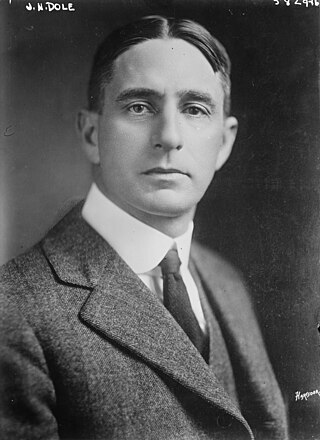
James Drummond Dole, the "Pineapple King", was an American industrialist who developed the pineapple industry in Hawaii. He established the Hawaiian Pineapple Company (HAPCO) which was later reorganized to become the Dole Food Company that operates in over 90 countries. Dole was a cousin of Sanford B. Dole, President of the Republic of Hawaii.

Henry Alexander Baldwin or Harry Alexander Baldwin was a sugarcane plantation manager, and politician who served as Congressional Delegate to the United States House of Representatives representing the Territory of Hawaii. He was one of the earliest leaders of the Hawaii Republican Party.
Alexander & Baldwin, Inc. is an American company that was once part of the Big Five companies in territorial Hawaii. The company currently operates businesses in real estate, land operations, and materials and construction. It was also the last "Big Five" company to cultivate sugarcane. As of 2020, it remains one of the State of Hawaii's largest private landowners, owning over 28,000 acres (11,000 ha) and operating 36 income properties in the state.
Maui Land & Pineapple Company, Inc. is a land holding and operating company founded in 1909 and based in Kapalua, Hawaii, United States. It owns approximately 24,300 acres (100 km2) on the island of Maui. It develops, sells, and manages residential, resort, commercial and industrial real estate; and operates retail, golf and utility operations at the Kapalua Resort. ML&P also owns and manages the 8,304-acre (33.61 km2) Puʻu Kukui Watershed Preserve, one of the largest private nature preserves in the state of Hawaii. It formerly grew pineapples.

The island of Maui with a relatively central location has given it a pivotal role in the history of the Hawaiian Islands.
Charles William “C.W.” Dickey was an American architect famous for developing a distinctive style of Hawaiian architecture, including the double-pitched Dickey roof. He was known not only for designing some of the most famous buildings in Hawaiʻi—such as the Alexander & Baldwin Building, Halekulani Hotel, Kamehameha Schools campus buildings—but also for influencing a cadre of notable successors, including Hart Wood, Cyril Lemmon, Douglas Freeth, Roy Kelley, and Vladimir Ossipoff.
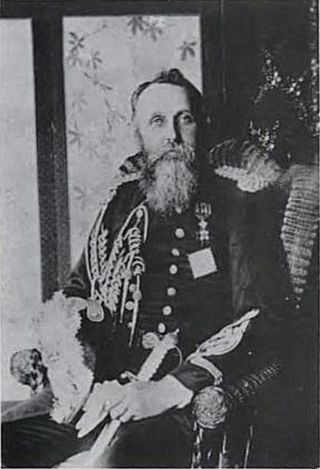
William Hyde Rice was a businessman and politician who served in the Kingdom of Hawaii, during the Kingdom's Overthrow, and in the following Republic of Hawaii and Territory of Hawaii governments. He collected and published legends of Hawaiian mythology.

Kapalua Resort is a golf and beach resort in Kapalua, Hawaii on the northwest shore of the island of Maui near Lahaina, Hawaii. It is owned by Maui Land & Pineapple Company.

Dwight Baldwin was an American Christian missionary and medical doctor on Maui, one of the Hawaiian Islands, during the Kingdom of Hawaii. He was patriarch of a family that founded some of the largest businesses in the islands.
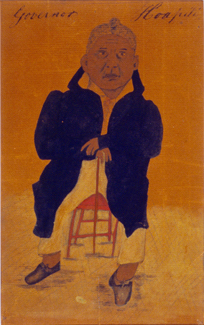
Ulumāheihei Hoapili was a member of the nobility during the formation of the Kingdom of Hawaii. He was a trusted military and political advisor to King Kamehameha I, known as "Kamehameha the Great". Although trusted with one of the last symbolic rites of the Hawaiian religion, he later became a supporter of Christian missionaries.
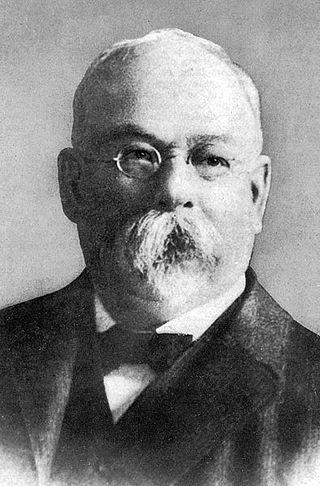
Henry Perrine Baldwin was a businessman and politician on Maui in the Hawaiian Islands. He supervised the construction of the East Maui Irrigation System and co-founded Alexander & Baldwin, one of the "Big Five" corporations that dominated the economy of the Territory of Hawaii.
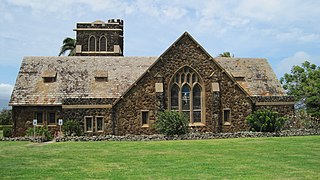
Makawao Union Church is a church near Makawao on the Hawaiian island of Maui. It was founded by New England missionary Jonathan Smith Green during the Kingdom of Hawaii. The third historic structure used by the congregation was designed by noted local architect C.W. Dickey and dedicated in 1917 as the Henry Perrine Baldwin Memorial Church. In 1985, Makawao Union Church was placed on the Hawaii and National Register of Historic Places.

Jonathan Smith Green was a missionary from New England to the Kingdom of Hawaii.
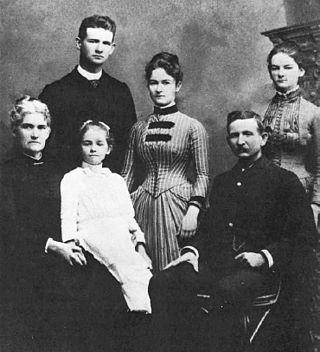
Samuel Thomas Alexander co-founded a major agricultural and transportation business in the Kingdom of Hawaii.

William Patterson Alexander was an American missionary to the Kingdom of Hawaii. His family continued to influence the history of Hawaii.

William Owen Smith was a lawyer from a family of American missionaries who participated in the overthrow of the Kingdom of Hawaii. He was attorney general for the entire duration of the Provisional Government of Hawaii and the Republic of Hawaii.

The Fred Baldwin Memorial Home was built in 1910 and endowed by Emily and Henry Perrine Baldwin to provide housing for elderly Hawaiian and haole men. It is named for their son Fred Baldwin (1881-1905). Its architect was H. L. Kerr, who had earlier designed the Old Wailuku Courthouse. In 2011, it was restored by Xorin Balbes to operate as an educational retreat named Lumeria Maui. It was added to the National Register of Historic Places on 1 December 2011.

Alexander & Baldwin Sugar Museum is located in the small sugarcane growing and milling community of Puʻunene, Hawaii, Kahului, Maui. The museum exhibits the history of Hawaiian sugarcane plantations and Alexander & Baldwin and its role in the sugarcane industry in Hawaii. The company itself continues in business and though it has diversified, it continues to produce sugarcane. The museum itself in the former mill manager's house.
Zorobabela Kaʻauwai was an early politician and judge in the Kingdom of Hawaii. Beginning as an assistant to the Hoapili, Governor of Maui, he served many political posts including Assistant Judge of the first Supreme Court of Hawaii, an original member of the Board of Commissioners to Quiet Land Titles, a multiple-term representative in the Hawaiian legislature and circuit judge for Maui. An early convert to Christianity and devout adherent of the Protestant faith, his first name is a Hawaiian form of the Biblical name Zerubbabel.
















